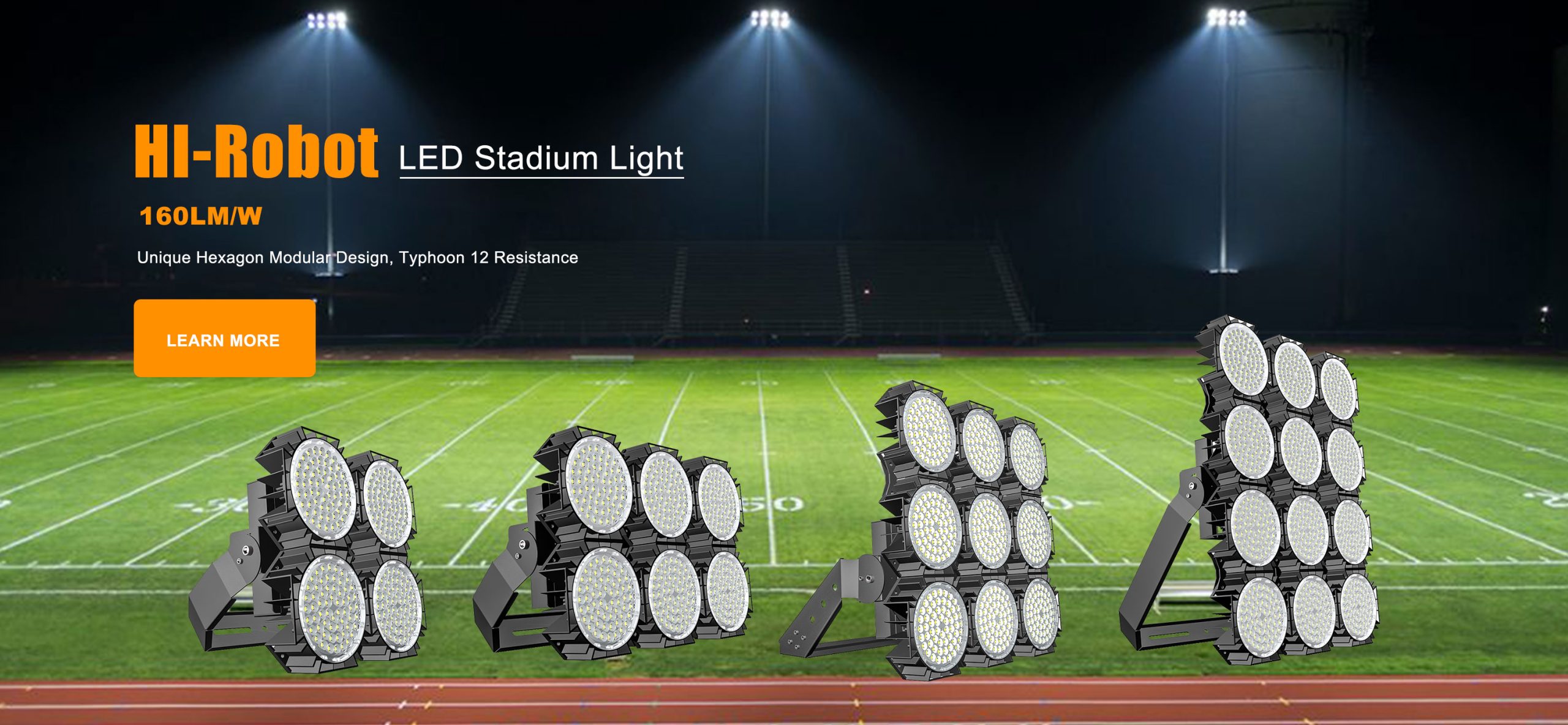Sports lighting is a very important facility for various sports events, because it not only meets the needs of athletes, but also meets the broadcast effects of various TV networks. Ordinary LED lamps cannot be used as sports lighting. Because it is not specially designed for the stadium, ordinary LED lamps will have light decay, uneven illumination, glare and other phenomena.
What is the difference between ordinary LED lamps and sports lighting?
1. Sports lighting fixtures have a powerful heat dissipation system with less light decay and are more durable than ordinary LED fixtures. A 1000W light fixture left on for several hours during a ball game will generate a lot of heat. If the heat dissipation is not good, the materials in the lamp will be lost, resulting in excessive light decay and damage to the internal circuit of the lamp body. The sports lighting fixtures adopt military phase change heat dissipation technology, which solves the problem of difficult heat dissipation. Make sure that the illuminance level and uniformity value are constant.

Hishine Group Limited case comparison.
2. Sports lighting fixtures use intelligent light control to avoid insufficient illumination. As we all know, ordinary LED lamps do not have a light control system. A single lighting design can’t meet the lighting needs of various stadiums, but sports lighting fixtures have an intelligent adjustment system, which can intelligently control light for other stadiums through the Internet, GPRS, and WIFI. Effectively avoid the phenomenon that the lights on the court are too dark.
3. The optical design of sports lighting fixtures prevents glare and glare. As an important part of the core technology, according to the lighting characteristics of sports field, it solves the problems of glare, uneven brightness, and spilled light. Ordinary LED lamps do not have professional glare treatment, and when used as sports lighting lamps, they will be dazzling, and even directly affect the game. Stadium lighting design is mainly to meet the needs of football, track and field, rugby, hockey and other sports. Football is played not only on the ground, but also in a space 10-30m away from the ground. Therefore, it is necessary to maintain a certain brightness in all directions at a certain space height. Generally, the light distribution in the space below 15m above the football field should be very uniform. Most track and field competitions are held within a height of about 3m from the ground. The lighting of such sports facilities mainly meets the requirements of uniform light distribution on the ground. The height of javelin, discus, hammer throw and other sports can reach 20 meters. In the past, such sports were often not held at night, but now these sports are often held at night, and they are often finals or qualifying matches. The importance can be seen. Therefore, site lighting must meet the needs of such projects.

In addition, stadium lighting design is also very important. To do a good job in stadium lighting design, the designer must first understand and master the stadium lighting requirements: there should be sufficient illumination and uniformity of lighting, glare-free lighting, appropriate shadow effects, and light source chromaticity The correctness of the parameters, etc., are described qualitatively below. The lighting engineers of Hishine Group Limited will provide you with professional project lighting simulation design.
Color TV broadcast lighting should take the vertical illuminance of the venue as the main design indicator. Generally, the venue lighting must meet the requirements of athletes, spectators and cameras. Therefore, it is required that the horizontal illuminance, vertical illuminance and the brightness of the camera when shooting the panoramic picture must maintain the consistency of the change. The brightness change ratio between athletes, venues and spectators must not exceed a certain value, so as to meet the requirements of color TV cameras.
Color TV broadcasts require higher illuminance than black-and-white TVs, high-definition TVs require higher illuminance than standard-definition color TVs, and ultra-high-definition TV broadcasts are currently being tested, and the lighting requirements will be even higher. In addition, the illuminance is closely related to the frame size of the TV screen. If the illuminance is low, the TV broadcast is limited to capturing panoramas; if the illuminance is high, both panoramas and close-up shots can be taken, making the TV broadcast more vivid.
Professional stadium LED lights not only provide high-quality lighting effects for athletes, but also provide more comfortable and safe economical and viewing atmosphere for spectators. In the field of stadium lighting, more and more stadium lighting chooses to cooperate with Hishine Group Limited.

